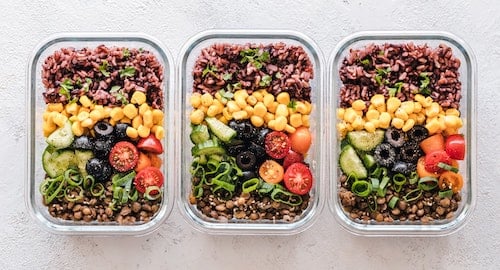In preparation for an upcoming marathon or race against your own personal best, you’ve probably obsessed over figuring out the best training techniques or even running clothes or shoes to wear. All this, just to ensure you can perform optimally on the big day. While the above are all completely fair considerations for optimal performance, there’s another crucial factor that’s often overlooked - and that’s diet.
Now the question you’re probably asking yourself is 'what and when exactly should I eat in preparation for a run in order to fuel myself most effectively?'
To answer that exact question, Dietitian Patsy Soh shares her top 3 nutrition tips in this article:
1. Keep it fresh

What you put inside your body is just as important as clocking in your weekly mileage. Limit high sugar and high fat pre-packaged food, and instead stock up on fresh fruits, vegetables, wholegrain, nuts and seeds.
For example, snacking on an apple and nut butter rather than potato chips will help you to feel full longer and are guaranteed to fuel you for better for your runs.
2. Drink up
Remember that hydration is important all the time - not just when exercising.
Fluids play many roles in our bodies such as temperature regulation, joint lubrication, waste removal and most importantly, water helps your brains and heart to function optimally. Not sure how much water to drink? Just take a look at your pee colour!
3. Time it right

When to eat is dependent on what kind of workout you are planning to do and what time of the day you are running.
For easy runs lasting less than 60 mins, you can run on an empty stomach or in fasted state, however, for longer or harder workouts, a pre-workout snack will help to reach your target distance.
The food you eat before a workout is important, but don’t forget that post-workout nutrition is beneficial too! Eating the right foods after your workouts can kick-start your recovery process, so eat foods high in protein and carbs within 20-30 minutes of completing your exercise.
Need more ideas or tips on how to improve your nutrition for your training or a race?
Get in touch with Patsy, a dietitian and fellow runner herself, by dropping her an  .
.
Featured Contributor:

 is a NZ Registered Dietitian with a BSc in Human Nutrition from University of Otago, New Zealand, a Postgraduate Diploma in Dietetics, an MSc in Human Nutrition and 15 years of experience.
is a NZ Registered Dietitian with a BSc in Human Nutrition from University of Otago, New Zealand, a Postgraduate Diploma in Dietetics, an MSc in Human Nutrition and 15 years of experience.
As a dietitian, she believes that being fit and healthy is a holistic experience, hence nutrition, physical activity and emotional well-being has to go hand in hand. To this end, Patsy completed a FISAF (Federation of International Sports, Aerobics and Fitness) course to be a Personal Trainer. This would better equip her to give exercise prescription in addition to dietary advice. She especially loves helping parents get back their fitness and back to healthy body weight.

.jpg)




